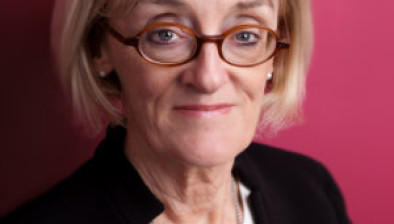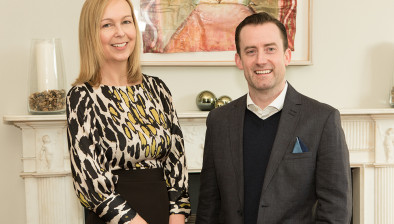High Court: Mother ordered to return children to Sweden despite claims eldest child would self-harm

The High Court has determined that a mother had wrongfully removed her two children to Ireland and ordered that they should be returned to Sweden under the Hague Convention. The eldest child claimed that she would self-harm if she was returned to Sweden but the court held that there were not strong enough reasons to keep the children in Ireland.

About this case:
- Citation:[2022] IEHC 733
- Judgment:
- Court:High Court
- Judge:Ms Justice Mary Rose Gearty
Delivering judgment in the case, Ms Justice Mary Rose Gearty held that there was a risk that the eldest child would self-harm, but this risk was not sufficiently grave to meet the legal threshold outlined in the case law. The court held that Swedish authorities could provide assistance to the child, who were best placed to care for her.
Background
The parents married and had two children, who were anonymised as Rachel and Isobel for the purpose of the judgment. Rachel was 12 years old at the time of judgment and Isobel was eight. Both parents had family links with Ireland but neither child lived in the State since they were very young. Instead, the family lived in Sweden.
The parents separated and the father continued to have shared custody with the children. The parents engaged in family law divorce proceedings in Sweden and that process had not completed by the date of judgment.
In August 2022, the mother brought the children to Ireland for a family holiday and decided to remain here. The mother claimed that this was to help her ill father, although the children were enrolled in school before her father become ill. On 28 August 2022, a Swedish court made an order for the return of the children. As such, unless a defence was established, the father was entitled to the immediate return of the children.
The mother’s defence to the proceedings was that there was a grave risk to the welfare of her children if they were returned to Sweden. Specifically, the mother outlined that Rachel had stated that she would self-harm if she was returned to Sweden. Rachel had previously been unhappy in a Swedish school and had moved school shortly before coming to Ireland. In Ireland, she was doing well in school.
The factual background also included applications by the mother to relocate the children to Ireland in 2019 and May 2022. The applications focused on why the relocation would be better for the mother both personally and financially. Neither application referred in detail to the welfare of the children.
A report from investigators in the 2019 application outlined the mother’s wishes for leaving Sweden, which largely related to her own circumstances. The investigators noted that the mother portrayed the father as ruining her life, which was not constructive. She was harsh in her criticism of the father, who did not have any issues in caring for the children.
It was also said that the mother presented an idealised view of Ireland to the children. A report on the views of the children was obtained for the Irish proceedings, where Rachel described her Swedish school experience very negatively. She had not attempted self-harm since moving to Ireland and indicated a strong objection to returning to Sweden. Isobel simply indicated a preference to remain in Ireland.
High Court
Ms Justice Gearty began by outlining the well-established case law on refusing to return a child wrongfully removed from a jurisdiction based on grave risk. The court noted that the evidential burden was a high threshold which the mother was required to discharge (C.A. v. C.A. [2010] 2 IR 162). Further, the court held that a fundamental principle of the Hague Convention was that disputes about care and welfare of children were best resolved in the place of residence (C.T. v. P.S. [2021] IECA 132).
The court was also required to consider the facilities available in the requesting State to assess or mitigate a risk to a child. Any movement from one country to another may be upsetting to a child, but this was not the level of risk contemplated by the Convention (R.K. v. J.K. [2000] 2 I.R. 416).
The court noted that the issue of self-harm was not raised by the mother in either the 2019 or the 2022 application for relocation. Instead, the relocation focused on the personal needs and wants of the mother. The court took the view that this meant the risk was not sufficiently serious to merit attention as late as May 2022.
Further, Rachel had been placed in a different Swedish school just before moving to Ireland and had been described as adapting well. Importantly, the court outlined that Rachel’s issues appeared to derive from her situation at school rather than anything to do with her family life.
Ms Justice Gearty also held that the mother was sharing inappropriate information with Rachel about the Swedish family law proceedings and her relationship with the father. The mother maintained that it was appropriate to share this information. It was clear that the sharing of information had previously had a negative effect on Rachel, a vulnerable child, and the mother did not appear to recognise how damaging this information was for Rachel to hear, the court said.
Text messages were exhibited which showed the parents had a fractious relationship, but there was nothing to say that there were serious childcare concerns on the part of either parent.
The court emphasised that it was bound by the law and to reflect the aim of the Convention. The court concluded that, while there was a risk to Rachel, there was insufficient evidence to establish a “grave risk”. Further, the Swedish authorities were well-placed to deal with any issue regarding self-harm and to mitigate the risk.
The court went on to assess the objection of Rachel. The court held that a child expressing self-harm ideation was disturbing but such threats must be supported by previous medical history, opinion and documented threats. Again, the court noted that no such issue arose in the previous proceedings in Sweden.
The court also held that the Convention would be undermined if every threat of suicide or self-harm would lead to a refusal to return a child to their rightful residence.
Finally, the court held that Rachel had an unrealistic view that she could stay in Ireland and be cared for by her father. Rachel understood that her father would move to Ireland which was not supported by evidence. Remaining in Ireland would present other difficulties which Rachel had not considered and therefore her objection did not outweigh the need for her return.
Conclusion
The court commented that Rachel’s difficulties may be reduced by lessening the conflict between the parents and refraining from sharing inappropriate information.
The court held that the children were wrongfully abducted from Sweden and there was insufficient evidence to establish a “grave risk” to their return. While Rachel’s views amounted to a strong objection, it was not counterbalanced by the factors favouring her return, including her relationship with her parents and the ongoing professional support in Sweden.
J.K. v. L.E. [2022] IEHC 733












